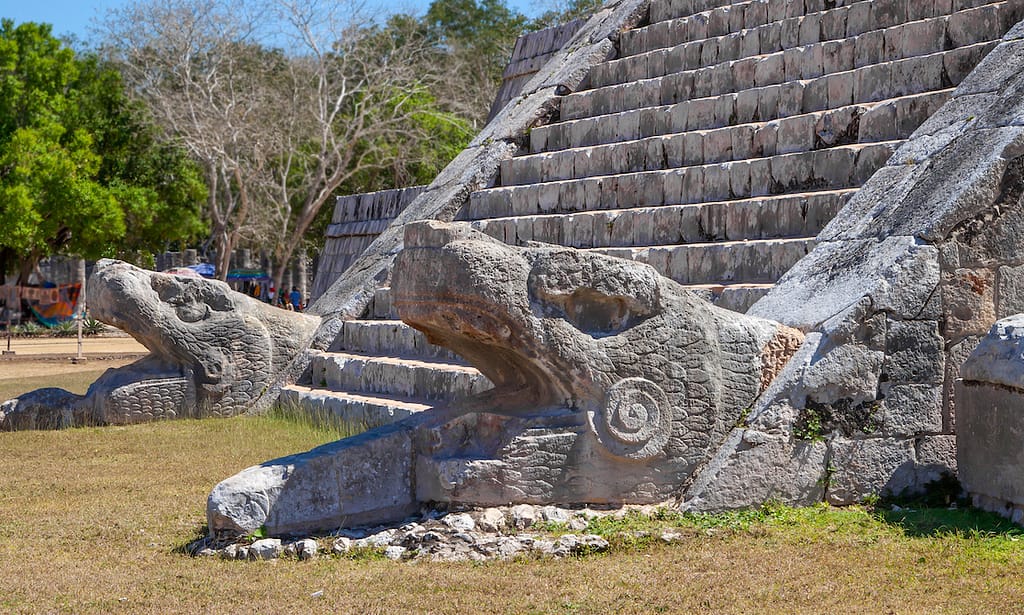It’s an Important Date on the Mayan Calendar
and in the Tulum© series by Beverly & Steve Smirnis

Winter Solstice occurs when the angle between the sun’s rays and the plane of the Earth’s equator appears to stand still. The term “solstice” comes from the Latin words sold (sun) and sistere (to stand still).
The solstice celebration at Chichen Itza is one of the most celebrated. There, the sun casts its shadow on the northern stairway of the Pyramid of Kukulcan. This creates a diamond pattern representing a snake’s body. That signifies the presence of the God Kukulkan appearing as a feathered serpent.
Important dates on the Mayan calendar are Spring Equinox, Summer Solstice and Fall Equinox. These days are also important in the plot of the series, Tulum©, by Beverly and Steve Smirnis

Learn more about the legend of Kukulcan
